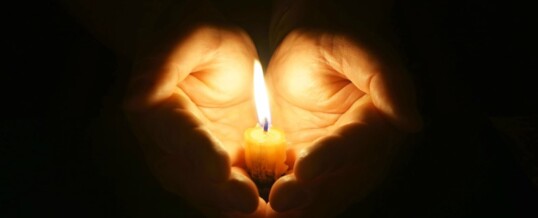
“Faith is to believe what you do not see;
The reward of faith is to see what you believe.”
St. Augustine
Throughout our lives, we encounter experiences that knock our sense of balance off kilter and we discover that what we believed to be unchangeable is now somewhat unstable. When unexpected loss, trauma or darkness envelops us, or those we love, we sometimes question our deepest beliefs in God and in ourselves. Although varied reasons exist, few of us have managed to totally avoid these times of soul-searching crises. Our present pandemic has been such a catalyst for some. Although some people have enjoyed discovering previously untapped sources of faith enrichment, the loss of “normal” has left a void in many people’s lives; leaving them unsure of how to find nourishment for their spiritual hunger. Many have told me that they feel drained; that the never-ending sense of “crisis” has depleted their inner reserves of hope and optimism, making it hard to feel God’s presence in their lives.
Thinking about the many different faith-altering moments of our lives made today’s gospel story of Thomas relatable for me. He is often unfairly referred to as “Doubting Thomas”, but I prefer how some writings refer to him as “Thomas, the Twin,” for he represents all of us at those points in our faith lives when we are torn between belief and unbelief, between old beliefs and new truths; that dual nature of an evolving faith that moves between the peace we find in our assurance that God is near and the confusion of struggling with doubts and uncertainty.
Teachers of our faith have often referred to these internal struggles of faith as “dark nights of the soul,” and I find comfort knowing that many great saints experienced these difficult times on their faith journey. Like Thomas, we find ourselves begging for some sort of proof or sign that our faith in God’s love is legitimate and true. We may not be given the opportunity offered Thomas to physically touch the risen Christ, but sometimes allowing ourselves to be open to encountering the risen Christ can reveal God to us in new and totally unexpected ways. Recognizing these encounters help us to evolve, yet again, in our relationship of faith. As in any relationship of value, be it marriage, friendship or faith, a constant demand for proof of another’s love can prevent the trust needed to recognize the love that is being offered. Being open to receiving someone’s love and acceptance, often allows us to recognize the signs of its existence even when it may not resemble what we expected.
The disciples were experiencing their own “dark night of the soul,” and locked the doors in fear, ashamed of their betrayals and failures and afraid of an uncertain future. Yet Jesus found a way to get past their walls and, without judgement or reprisals, offered them the gift of his peace. Unlike Thomas, Jesus never asks for proof of their belief or strength of faith or level of worthiness, but offers his gift of hope and light unconditionally. They had to accept the gift, however, to recognize its true worth. God seeks us into relationship regardless of our failings, even when we are unable to seek out God.
The story of Thomas and the disciples during their dark days of doubt and fear, reminds me of one my favourite songs, “Anthem” by Leonard Cohen, in which he writes “There is a crack in everything. That’s how the light gets in.”
Mary Joshi
APR
2021

About the Author: